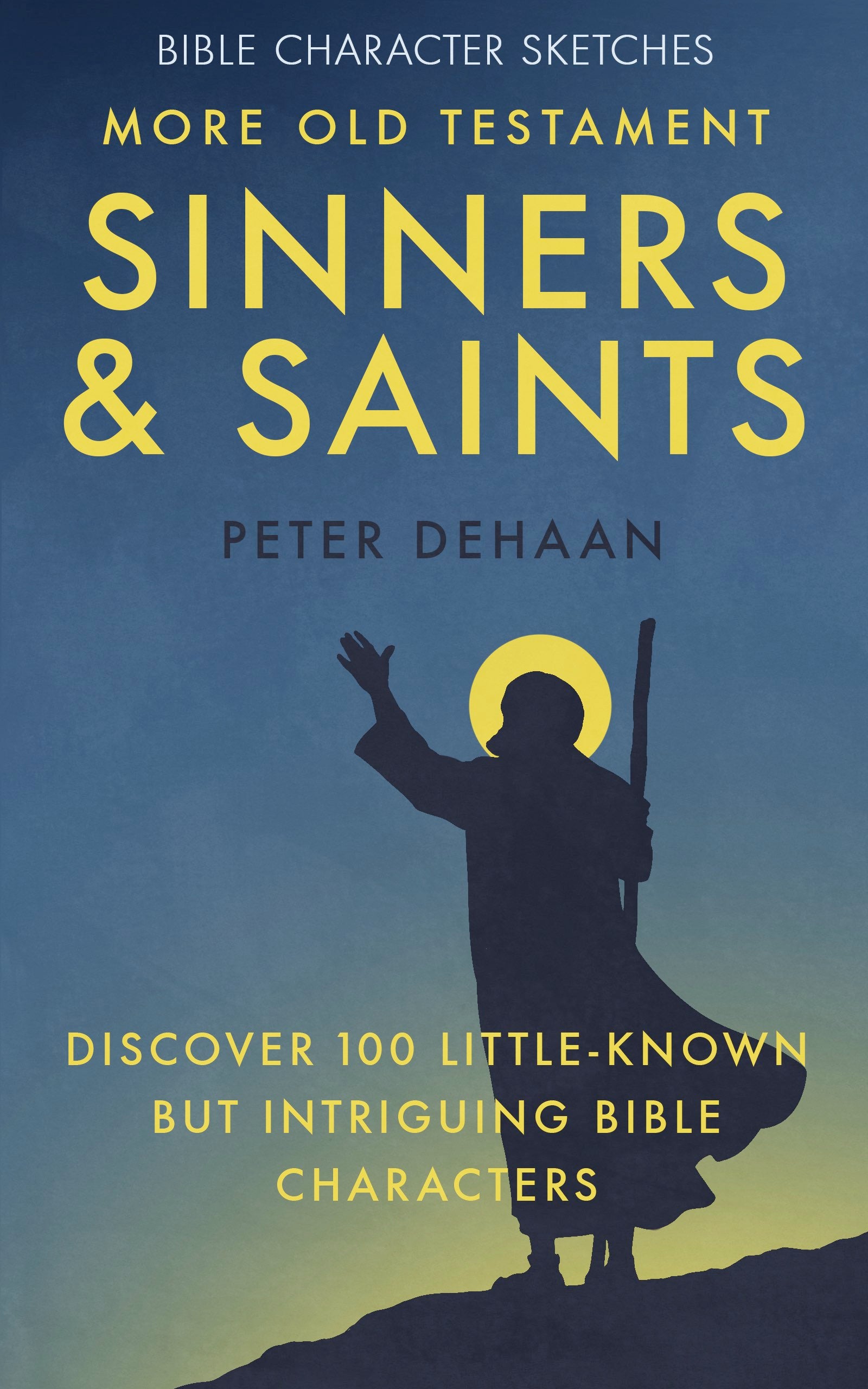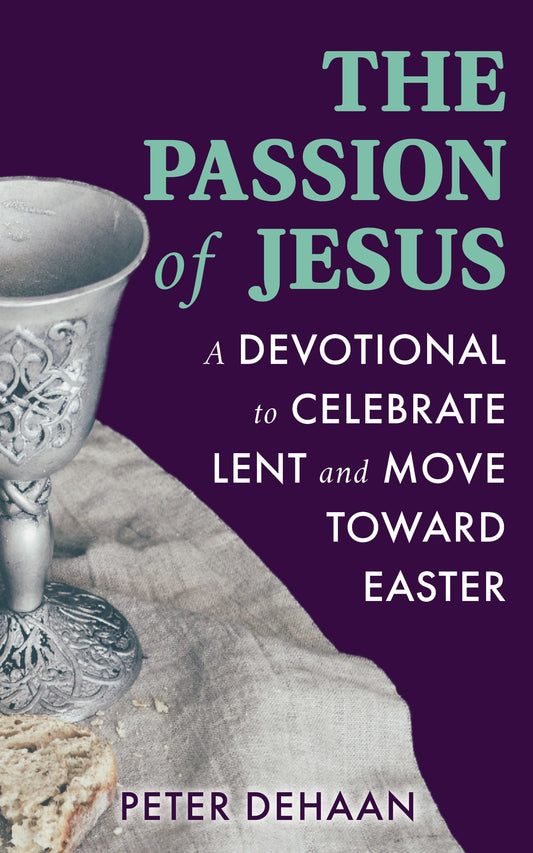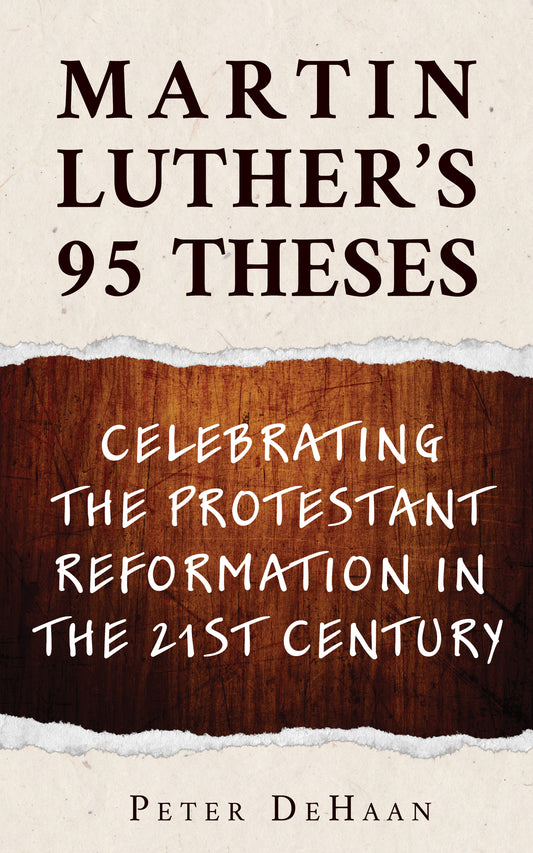More Old Testament Sinners and Saints: Discover 100 Little-Known but Intriguing Bible Characters (ebook)
More Old Testament Sinners and Saints: Discover 100 Little-Known but Intriguing Bible Characters (ebook)
Explore the Insightful Lives of 100 Little-Known Bible Characters
Couldn't load pickup availability
Discover the timeless relevance of Old Testament characters in your life today with MORE OLD TESTAMENT SINNERS AND SAINTS. This devotional Bible study explores the captivating stories of 100 more men and women from the Old Testament, revealing the profound lessons they hold for us today.
Delve into the lives of both inspiring heroes and broken individuals who faced mistakes and disappointments. Through these colorful and awe-inspiring stories, gain invaluable insights about yourself and our powerful God. From sinners to saints, these characters, with their familiar and unfamiliar names, will challenge you to live differently and offer you a fresh perspective on your own life and faith.
MORE OLD TESTAMENT SINNERS AND SAINTS invites you to:
- Transform your life through the wisdom of these Old Testament characters.
- Learn from the triumphs and mistakes of these impactful figures.
- Explore familiar Biblical stories from a new angle.
Navigate this study alongside Peter DeHaan, a seasoned Bible teacher and author, as you uncover the hope, assurance, and abundant lessons found in the lives of these men and women. Whether you're studying individually, in small groups, or part of a Bible study, this invaluable resource will enhance your understanding of the Old Testament and its application to your life today.
Each day's study offers a concise reading, thought-provoking questions, and additional Bible passages for further exploration. As you move through the pages, you'll realize how these 100 captivating characters can reshape your perspective, deepen your faith, and help you trust in God's plan no matter what lies ahead.
MORE OLD TESTAMENT SINNERS AND SAINTS will not only take you on a journey through their impactful stories, but it will also invigorate your faith and draw you closer to Jesus.
Don't miss out on the transformative power of these rich, amazing stories.
Pick up a copy of MORE OLD TESTAMENT SINNERS AND SAINTS today and embark on a life-changing journey through the lives of these powerful men and women.
---------------------------------------------
How it works. It’s as easy as 1-2-3:
1. Complete your purchase here.
2. You’ll receive an email from BookFunnel to download or access your book. (Click the “help” link in the email if you have questions.)
3. Start reading right away on any device.
Bible Character Sketches Series, book 4
If you have questions about ordering, check out our FAQs.
View full details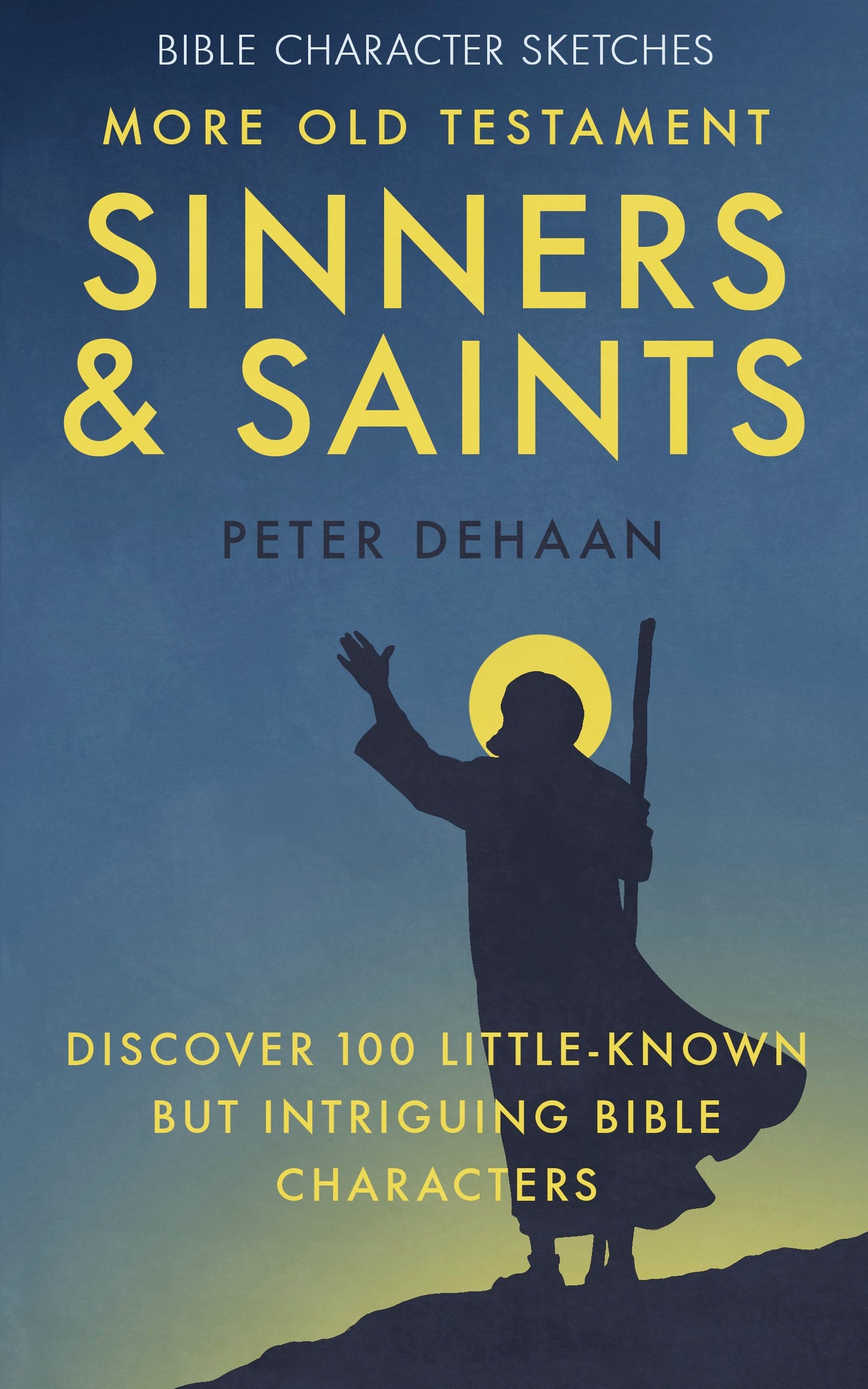
Would you like to read a sample?
Click here to read a sample
More Old Testament Sinners and Saints
Some Christians dismiss the Old Testament. They argue that since Jesus came to fulfill the Law and the Prophets (Matthew 5:17), what it says doesn’t matter to them or their faith practices today. Other Christians embrace the Old Testament, putting it on an equal footing with the New Testament. They reason that all Scripture—both the Old and New Testaments—has merit (2 Timothy 3:16).
We should instead embrace the Old Testament for what it is and let it inform our understanding of the New Testament and the faith practices it reveals. We can most appreciate God’s New Testament of Scripture from the foundation the Old Testament provides.
From this perspective, we can celebrate the Old Testament. It has two main purposes. The first is to reveal God to us. The second is to anticipate the coming Savior, Jesus.
In the Old Testament law—given to us through Moses—a mind-numbing list of things to do and not do confronts us. This is to make us right with Father God. But it’s an impossible undertaking to achieve. Everyone falls short. Whether by a little or a lot, it matters not. We all miss the mark of the Old Testament’s prescription (James 2:10).
Yet the Old Testament also gives us hope of the coming Savior who will offer a better way for us to approach God. It’s a way everyone can realize—if they want to. It’s believing in Jesus and following him as his disciple. This is so much better than a bunch of impossible-to-keep rules.
In this way, we can best read and understand the Old Testament as it anticipates and points us toward Jesus, the Messiah.
From this perspective, we’ll continue the mission of Old Testament Sinners and Saints and explore one hundred more Old Testament characters. Many of their stories overlap, and others are hard to place on the biblical timeline. Yet we’ll do our best to cover them in chronological order.
Some of these one hundred Old Testament characters provide examples to follow. We’ll call these people saints, even though they’re less than perfect. The Old Testament also includes a colorful list of screwups (sinners), the people who fall short and make a mess of things. We can see their lives as examples to avoid.
Several of these people share names with other biblical characters. For example, did you know there are two people named Noah in the Bible? Whenever we encounter a duplicate name, we’ll add a number at the end to help us keep things straight. You can learn more about this in “Duplicate Names” in the back of the book.
As we consider these individuals on a continuum from mostly good to mostly bad, remember that all of them miss the mark of meeting God’s Old Testament expectations. This points us to God’s better way through Jesus, as revealed in the New Testament.
May these Old Testament sinners and saints inform you to embrace Jesus, first to become his disciple and then to live as one.
1. Lamech (1)
The Bible lists no genealogy for Abel, so we can guess that he died before he had any children. Scripture focuses on the descendants of Seth but gives a short recitation of Cain’s genealogy first (in Genesis 4). We must be careful in reading these names in Cain’s line, since two names also appear in Seth’s line, though they refer to different men.
Such is the case with Lamech (1). (The other name to be careful with is Enoch. Also, watch out for Methushael, not to be confused with Methuselah.)
We know little about Lamech, but two things stand out.
First, Lamech marries two women, Adah and Zillah.
This is the first time any form of the word marriage occurs in the Bible, and this passage is also the first reference to polygamy. Though Bible scholars often place elevated importance on the first time a word appears in Scripture, we must be careful not to connect marriage with polygamy.
The Bible merely states that Lamech married two women, but it adds no commentary. Therefore, we’re wrong to take this descriptive text as approval for polygamy or as a warning against it. Notably, this may be the only time in Scripture when a man has multiple wives that doesn’t result in conflict or heartache. Consider the multiple wives of Abraham, Jacob, David, Solomon, and many others. Each suffers as a result.
The other thing we know about Lamech is that he kills a man. He’s the Bible’s second recorded murderer, with Cain being the first.
Though we could charitably ascribe the death of this unnamed man by the hand of Lamech as self-defense, it’s more likely an excessive retaliation. Lamech’s justification is that the man he killed had wounded and injured him. Regardless, Lamech considers what he did to be less wrong than Cain murdering Abel out of jealousy.
We must note, however, that Lamech’s killing of this man occurs prior to God giving Moses the Ten Commandments, which prohibit murder. Yet he should have been instinctively aware that murder is wrong.
When have we responded in an excessive manner to someone who wronged us? Do you think Lamech killed this man or murdered him? What is the difference?
[Read about Lamech in Genesis 4:19–24. All other mentions of Lamech in the Bible refer to Lamech (2), a descendant of Seth.]

Meet Author Peter DeHaan
Peter DeHaan, PhD, often makes religious people squirm, but spiritual seekers cheer. He’s not trying to be provocative, but he seeks truth, even if it makes some people uncomfortable. He yearns for Christians to push past the status quo and reconsider how they practice their faith in every area of their lives.
Peter earned his doctorate, awarded with high distinction, from Trinity College of the Bible and Theological Seminary. He lives with his wife in beautiful Southwest Michigan and wrangles crossword puzzles in his spare time.
-
Women of the Bible: The Victorious, the Victims, the Virtuous, and the Vicious (ebook)
Regular price $6.99 USDRegular priceUnit price / per$15.99 USDSale price $6.99 USDSale -
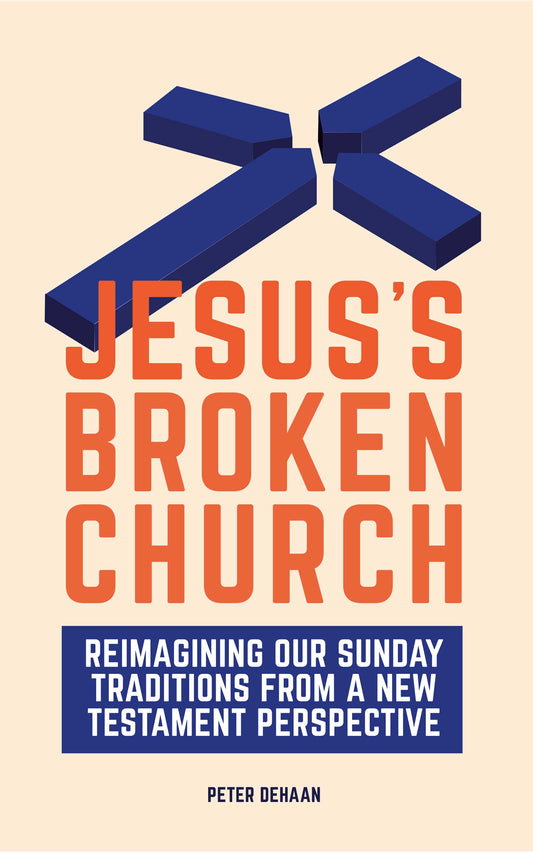
Jesus’s Broken Church: Reimagining Our Sunday Traditions from a New Testament Perspective (ebook)
Regular price $4.99 USDRegular priceUnit price / per$13.99 USDSale price $4.99 USDSale -
The Passion of Jesus: A Devotional to Celebrate Lent and Move Toward Easter (ebook)
Regular price $4.99 USDRegular priceUnit price / per$13.99 USDSale price $4.99 USDSale -
Martin Luther’s 95 Theses: Celebrating the Protestant Reformation in the 21st Century (ebook)
Regular price $4.99 USDRegular priceUnit price / per$12.99 USDSale price $4.99 USDSale
